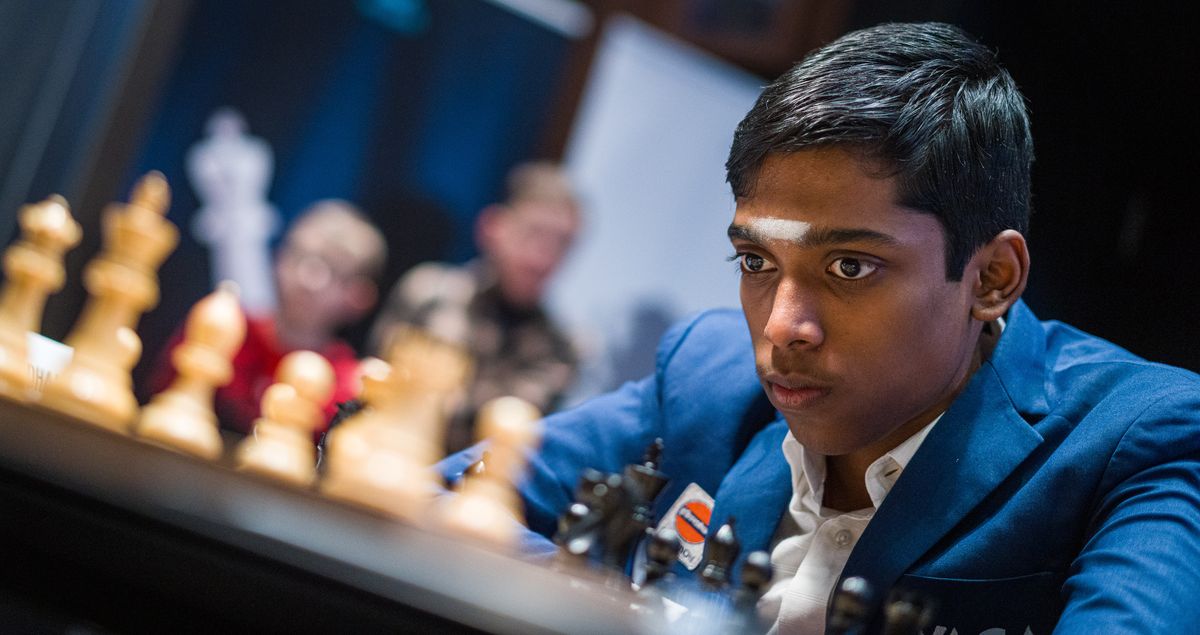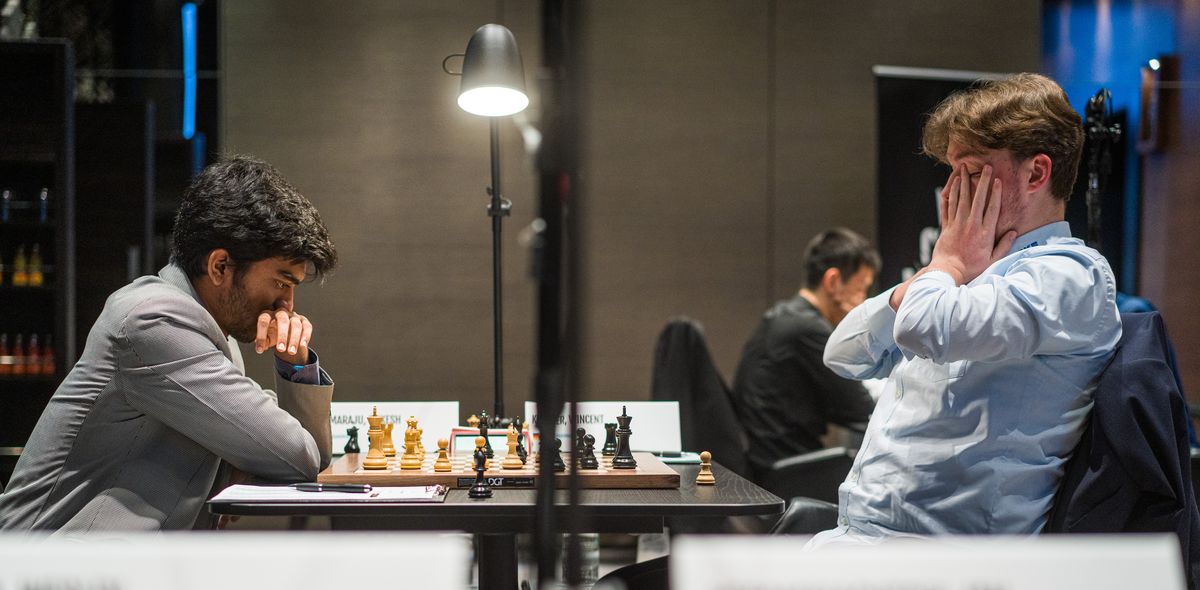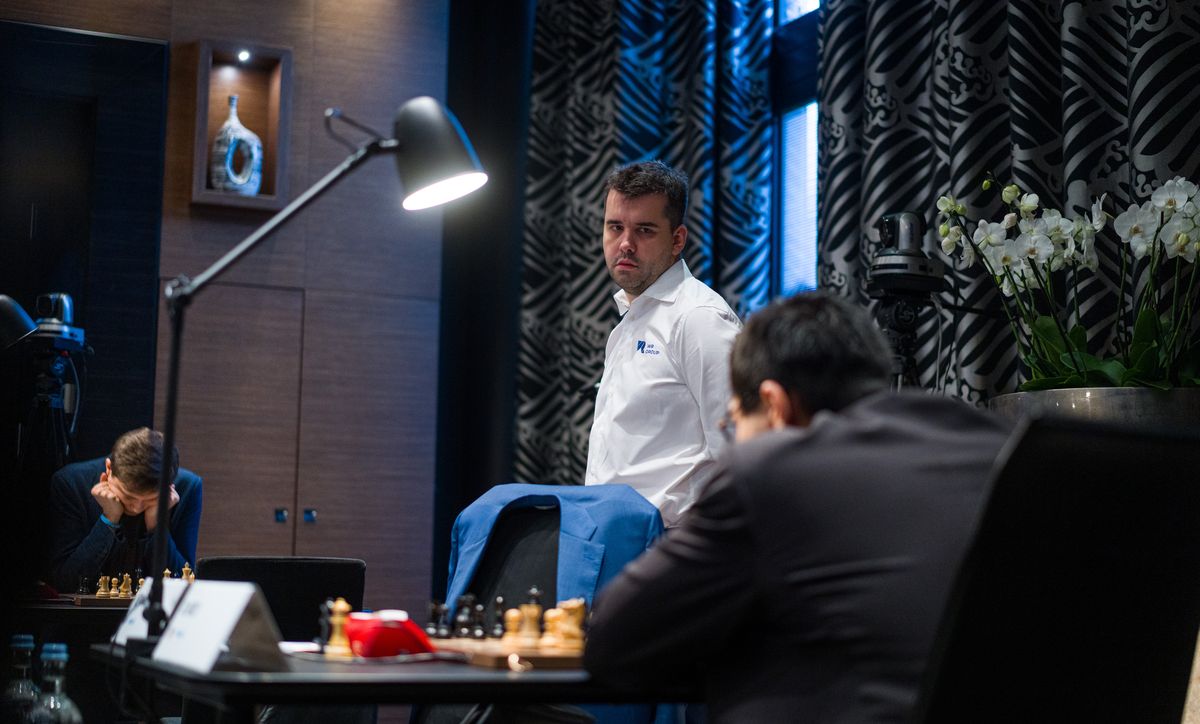It smelled like a draw shortly after move 30, when a symmetrical rook ending had developed between Nodirbek Abdusattorov and Praggnanandhaa. More in jest, almost giggling, Yasser Seirawan and Anastasia Karlovych listed the academic advantages of the white position on the livestream: a little more space, a slightly more active king, a slightly more active rook. They didn't say it, but let it slip that they expected a peace deal at any moment now.

The two experts were wrong. Until move 58, Abdusattorov tried to turn his mini-advantage into something tangible. Only when each of them was left with a single rook did the Uzbek and the Indian make peace. Their flawless game may serve as proof that it's not for lack of fighting spirit that draws are recorded after the dust has cleared. Five such draws were recorded in the fourth round.

Jan-Krzysztof Duda and Levon Aronian had such a game on the board, not as long, but with more dust. Just how much they both wanted it was soon evident from the fact that they both ignored the safety of their king. Instead of keeping their own lines closed, they blithely charged the lines opposite of them, a game along the motto of "burn bridges behind me, kick down doors in front of me".
However, in chess, this kind of action can lead to forced sequences. The foreseeable wild skirmish only rudimentarily took place. Then Duda spotted such a forced move sequence, one that secured him a perpetual check and half a point. And, more importantly, no alternative presented itself. Since anything else would have been punished by mate, Duda took the perpetual check and the half point.
Anish Giri spared the audience chess tantrums like the one in the paragraph before this one when he dissected his game against Andrey Esipenko in the stream following the draw. Giri instead had insights to offer. In chess, he said, there are two kinds of advantage, the human-organic one and the one that comes from better knowledge of engine variations. The latter, Giri lectured, was much more difficult to convert.
Indeed: If man has gained an advantage on the basis of his plans and maneuvers, then the basis for expanding this advantage is already given. If a man sits in front of a position of which he only knows that the engine evaluates it with "+0.5", then his planning and maneuvering starts at zero. Giri, who may be the most knowledgeable player in the world in terms of chess theory, unfortunately achieves engine advantages much more often than organic ones. And he fails to exploit them – as he did on Sunday against Andrey Esipenko.
Vincent Keymer would be happy to find any advantage at all, regardless of its nature. With 0.5 points from 3 games, a target was looming on his back, and now he was facing his third black game, against Gukesh this time. Still, it was time for Keymer to strike, Seirawan felt – he might do a comeback as Praggnanadhaa had done the day before, securing a win after two losses.
The local hero didn't have a choice anyway. Gukesh, possibly assuming that he was facing a battered opponent, immediately instigated a brawl. Spread across the board, Keymer had to tame an intermediate move here, a mate there, a skewer here and a running passed pawn there. The German number one had no choice but to let up his guard and parry what came. Keymer didn't show any weakness, but also didn't find a gap through which to counter – draw.
Most chess players are happy to have the bishop pair, and in the face of an extra pawn not only the self-confessed "pawngrabber" Yasser Seirawan clicks his tongue. Wesley So had both a bishop pair and an extra pawn against Ian Nepomniachtchi.

However, Nepomniachtchi had voluntarily given him both, first the pawn, then the bishop. He was by no means motivated by the joy of giving, but by the assessment that So would not be able to make anything out of the two advantages in the given constellation. The prospective world championship finalist was to be proved right. After the first time control, this game also ended in a draw.
Interviews and game analysis in the feed.
Round 4 video: